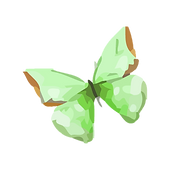"A" vs. "The"
- Eve

- Feb 23, 2018
- 4 min read
Recently my Russian friend asked me what the difference is between "a future" and "the future." I decided that the easiest thing to do would be to backtrack to some easier versions of "a" and "the," and work my way up to her future question. The use of these words can be a bit philosophical; you have to really think about what you are asking or talking about. Many English speakers are so used to the sound of these words that they do not even think about it, and I did not want to get confused while explaining them. Most people are never directly taught the difference; they just get used to it. So, I started with the basics.
"A future" vs. "The future"
Her examples were really good:
1. "I don't know if we have a future together."
2. "I don't know what to do in the future."
Let's start at the beginning with flowers.
"The flower lamp on Marcia's desk is so pretty."

"The flowers on Marcia's desk are so pretty."

"There are a bunch of fowers over here."
"Would you pick me a flower?"

Using the word "the" makes an object special. To me, it implies that you can see it either in front of you or in your mind's eye. It makes that object or idea more specific and personal to you. When you talk about "the city" you are probably referring to the largest city near you. "We are going into the city to go grocery shopping." On the other hand, when you talk about "a city," you are speaking more generally. "I would like to live in a city some day instead of this small town."
We can also talk about teddy bears.
"I wanted to pick out a stuffed animal."
"There a bunch at the store."

"I decided to buy a teddy bear."

"I decided to buy the blue teddy bear."

Imagine you see a girl and a teddy bear. (Notice that I used "a" both times.) After seeing her the first time, you might refer to her as "the girl and her teddy bear." You might also say something like "the girl hugged the teddy bear close to her." She went from being "a girl" (anybody) to being "the girl" (who you are paying attention to). Your way of referring to "the bear" has also changed because it is no longer just any bear; it is her bear and "the bear" you are looking at.
(Bonus Example: In this paragraph I said "the first time." Sometimes you will hear people say "there is a first time for everything" because they are talking about first times in general, but otherwise you will probably say "the first time something happened.")
And now let's talk about futures.
What kind of future is it?
1. Your future
2. Your potential future
"The future" implies that there is only one. In other words, this is "my future" or "your future." You are only thinking about the inevitable course of life. "What will I do with my future? What should I do in the future?"
"A future" implies that there is more than one life that can be led. "We have a future together. I can see myself having a good life with him, but maybe I want something more exciting. This isn't the life I wanted." Using the word "the" in the last sentence brings the concern back around to the life you are leading now and how it differs from the one you envision.
You can also use "world" to explain this.
"The world" makes you think of this, our universe, as one thing. It is the one we are paying attention to, the one that is most important. "What in the world?" "This is my favorite place in the world!"
"A world" makes us think that there are other options, or at least that you aren't really talking about the world seriously. It is more vague and implies the vastness of the world more than anything. "They lived a world apart." Or "There is a whole world out there to explore!"
The philosophy.
THE:
You are talking about something in particular.
"Would you pass me the [bowl of] potatoes please? I also need the salt."
A:
You are talking about something in general.
"Would you pass me a fork please? I also need a bunch of potatoes."
The best rule of thumb is to think about what it all means. Are you talking about just some random university ("a university") or are you talking about your university or one featured in a study ("the university")?
Also sometimes "a" just sounds weird. The rule is that you change "a" to "an" when the next word begins with a vowel, but that is not always true. For example, I would say "that was a unique experience" because of the way "unique" is pronounced: as though it has a Y at the beginning.
HELPFUL TIP: If neither "the" or "a" sound quite right, you can sometimes just say "one." For example, "One use of the word 'cow' means forcing people to do things through intimidation. For example, 'the professors were cowed into silence by the university.'"
(All pictures found on Google Images.)





























Comments